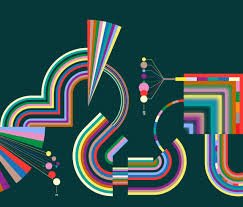For all the magic that ibogaine can perform on an opiate dependency, it lacks the same facility with benzodiazepines, another highly addictive class of drugs that has also cast notoriety on the pharmaceutical business.
Benzos -- which include pills like valium, ativan, klonopin and xanax -- are anti-anxiety medications that were introduced decades ago and are frequently prescribed by doctors and psychiatrists. As with opiates, it can be argued that benzos have their proper place in the medical pantheon, particularly among those who face debilitating anxiety or panic attacks. And yet, also as with opiates, there are huge numbers of people who abuse the pills or become full-blown addicted -- frequently finding themselves in a hole much deeper than the one in which they started.
opiates vs benzos
Many opiate addicts are also addicted to benzos, and in many such cases, ibogaine only does part of the job as a detox mechanism: while it curbs or even eliminates opiate withdrawal symptoms, it does relatively little to stave off benzo withdrawal. Thus, many double-addicted patients are free from their heroin addiction but must continue using benzos even after their ibogaine treatment.
(Note that, at low doses, some ibogaine patients may succeed in getting off completely; even at higher ones, many ibogaine providers do their admirable best to at least taper users to a lower dose)
ibogaine vs ayahuasca
We have found that another plant medicine, ayahuasca, appears to work more effectively against benzo addiction. To be sure, it does not have the equivalent power against benzos as ibogaine against opiates; yet, for someone who is able to wean down to a low dose, we have observed that one or two ceremonies with ayahuasca can be enough to knock out the habit altogether, typically with no discomfort.
Why this is so is not entirely understood, as there is little or no official research on the subject to date. Scientifically speaking, we do know that ayahuasca works to increase the body’s production of serotonin, and that benzos work primarily on the neurochemical GABA (same as alcohol). It may be that ayahuasca also boosts GABA production or that its targeting of serotonin produces a similar effect of relaxation that reduces the craving for GABA-based narcotics (both GABA and serotonin are known for helping the body to be more relaxed and at ease). Our sense is that, in all likelihood, it is a combination of both these factors.
Danger of benzodiazepine withdrawal
It must be emphasized that benzodiazepine withdrawal can be very dangerous (as with alcohol withdrawal, seizures can occur), and that even with the assistance of ayahuasca, extreme caution is in order. Again, this is a method only applicable to patients who have already tapered and stabilized on a very low dose of benzo -- low enough that discontinuing it even without any remedial substance would not pose a significant danger. The difference is that, by adding the sessions with ayahuasca, a process that would otherwise be more drawn out and uncomfortable becomes relatively seamless. Furthermore, it may be that ayahuasca, like ibogaine, reduces even long-term cravings for the drug because it helps the mind and body repair themselves on a level that they might not otherwise realize (in the case of ibogaine, this is often referred to as a physical “reset”).
Ibogaine integration and ayahuasca integration
All of that said, almost every case of drug addiction runs deeper than a mere physical dependency. Like ibogaine, ayahuasca is an astounding plant medicine that can help restore the body, as well as produce deep personal insights and mystical wonder. But for all the powers of these plants, old-fashioned human effort in the aftermath is always an indispensable piece to maintaining sobriety and building a new path.
